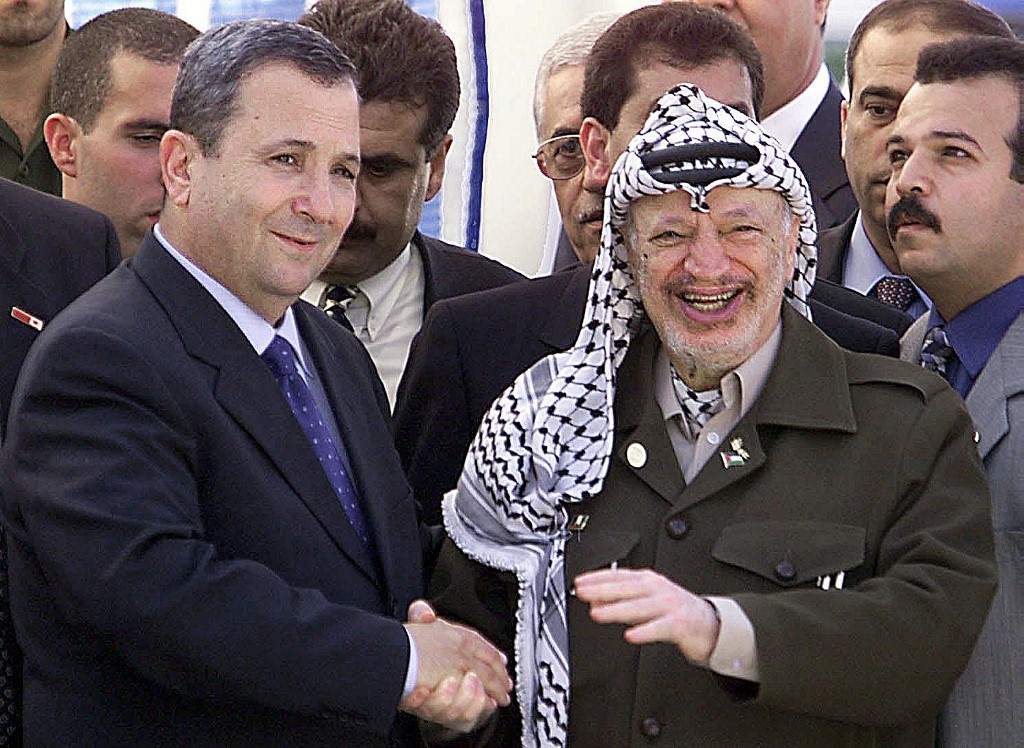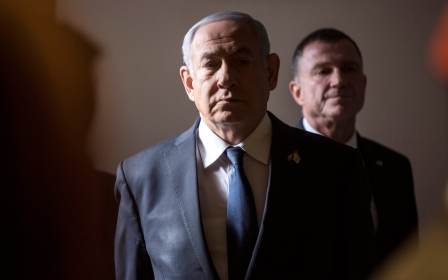How Palestinians can achieve a real 'peace of the brave'

In 1958, General Charles de Gaulle embarked on a new project to curb the ongoing revolution for national liberation against French settler-colonialism in Algeria. He called his plan “the peace of the brave”.
But his attempts to compromise with the Algerian revolutionaries came to naught, as they insisted on total liberation - a demand to which France acceded in 1962.
This rhetoric of colonial “peace” was revived by the Americans, who modified it to “peace process” in the mid-1970s in reference to Israel’s colonisation of Palestine and aggression against its Arab neighbours. As a result, Israeli colonisation of Arab lands became a “conflict” - a term that was never used for the Algerian resistance to French colonialism - and liberation struggles became “terrorism”. At the same time, “peace” came to refer to full Palestinian and Arab submission to Israel.
Language of 'peace' and 'conflict'
Arab governments, and later the Palestinian leadership, succumbed and replaced the erstwhile project of national liberation from Israeli settler-colonialism to the colonial language of “peace” and “conflict”.
Stay informed with MEE's newsletters
Sign up to get the latest alerts, insights and analysis, starting with Turkey Unpacked
In September 1992, in a speech to a delegation of Syrians from the Israeli-occupied Golan Heights, then Syrian president Hafez al-Assad spoke of a “peace of the brave” with Israel - “a real peace,” he added, not “games, traps and ambushes,” wherein all of Syria’s occupied land would be returned to Syrian sovereignty.
That the leader of the colonised natives would speak of the 'peace of the brave' in reference to surrendering Palestinian rights to their colonisers was farcical
Assad borrowed the phrase from de Gaulle, but changed its trajectory from a “peace” that colonisers must embrace to end settler-colonialism, to a “peace” embraced by the colonised to achieve the end of settler-colonialism.
The problem, however, is that the bravery of the colonised is usually demonstrated in their struggle for liberation, not in accepting a peace offer that ends settler-colonialism, which requires only celebration, not bravery. It is the colonisers who, de Gaulle thought, needed to be brave to abandon their ill-gotten colonies in the face of resistance and a native war of national liberation.
Since the 1993 Palestine Liberation Organisation's (PLO) surrender of Palestinian rights and a century of Palestinian anti-colonial struggle at Oslo, PLO functionaries who were transferred to the new colonial entity termed the Palestinian Authority (PA) have defended their historic capitulation as nothing short of safeguarding the Palestinian struggle.
Former PLO leader Yasser Arafat insisted that his capitulation would lead to a free, albeit much truncated, Palestine. He fancied himself a de Gaulle and spoke in 1994 of the “peace of the brave” in his Nobel Peace Prize speech - a prize he shared with the colonisers of the Palestinians, former Israeli prime minister Yitzhak Rabin (who personally expelled the Palestinian people from the city of Lydda in 1948) and former president Shimon Peres (the early architect of Israel’s nuclear arsenal and later the butcher of Qana), who insisted on continuing their colonisation project under the umbrella of “peace”.
Perpetual Zionist settler-colonialism
That the leader of the colonised natives would speak of the “peace of the brave” in reference to surrendering Palestinian rights to their colonisers was farcical. It is true that Arafat also called on the Israelis to embrace the Gaullist formula of a “peace of the brave” - but, for him, it was a call that both the coloniser and the colonised should embrace.
In Algeria, the revolutionaries showed their bravery by fighting for the liberation of their country from French settler-colonialism. The “bravery” that Arafat and his PA functionaries embraced was one of surrendering their homeland and people to perpetual Zionist settler-colonialism. When the Israelis spoke of the “peace of the brave,” it was former prime minister Ehud Barak who used the term - although it came up in the context of “peace” with Syria.
While Arafat’s capitulationist “bravery” marked the first decade of the Oslo surrender, much more was forthcoming in the second and third decades by Arafat’s successors to the throne of the PA.
Not only did Zionist settler-colonialism proceed at great pace under PA rule, while the PA and its staff lived in luxury in the Green Zone that is Ramallah, but the PA’s active suppression of all resistance to Israeli settler-colonialism also became under President Mahmoud Abbas a “sacred” commitment of which he spoke proudly.
While Abbas and the PA, along with the Israeli colonising army, terrorised the West Bank to end its resistance, they also brutalised Gaza for its steadfastness in the face of Israeli colonial sadism and avarice.
The only reversal of colonial settlement in the modern world has been achieved by wars of liberation, in some cases coupled with international solidarity. In Kenya, Rhodesia and Algeria, wars of liberation were the main instrument to end the rule of racist European colonists, alongside international solidarity, especially in the case of Algeria.
In South Africa, the case most similar to Palestine, the war of liberation was followed by international solidarity which together succeeded only in ending political apartheid, while maintaining economic apartheid and white colonial economic privilege.
Surrendering Palestinian rights
In the Palestinian case, the PA promised to end anti-colonial resistance and international solidarity with the Palestinian people as part of its capitulation to Israeli settler-colonialism, in return for an increase not a decrease in Israeli colonisation, coupled with business privileges for the PA functionaries and Palestinian businessmen who claim that their profits are a kind of “victory” over the Israelis, rather than the price for surrendering the rights of their people.
It took more than a decade after Oslo for Palestinians to rebuild international solidarity against Zionist colonialism and PA collaborators, while the PA remained active in undermining both local resistance and the Boycott, Divestment, and Sanctions (BDS) movement. Still, Palestinian resistance persists unceasingly, as does international solidarity.
While Israel has never shown bravery - except in the theft of Arab land and by murdering unarmed Palestinian children and adults - the PA and its operatives claim that their current bravery is demonstrated by resisting US President Donald Trump’s “deal of the century,” which seeks to dispense with the PA - as despite its own and Israel’s best efforts, it has failed to end Palestinian resistance and international solidarity.
The only resistance the PA has exercised since its establishment has been against Trump’s attempts to dissolve it once and for all. The “bravery” of its operatives in defending their privileges in the last few months, especially on Twitter, is unprecedented.
What the PA and its operatives fail to recognise, however, is that the only brave position they could take today, as a majority of Palestinians have demanded, is to dissolve themselves, so that the rest of the Palestinian people and their supporters around the world can continue to resist their colonisers with real and exemplary bravery.
The views expressed in this article belong to the author and do not necessarily reflect the editorial policy of Middle East Eye.
Middle East Eye delivers independent and unrivalled coverage and analysis of the Middle East, North Africa and beyond. To learn more about republishing this content and the associated fees, please fill out this form. More about MEE can be found here.







